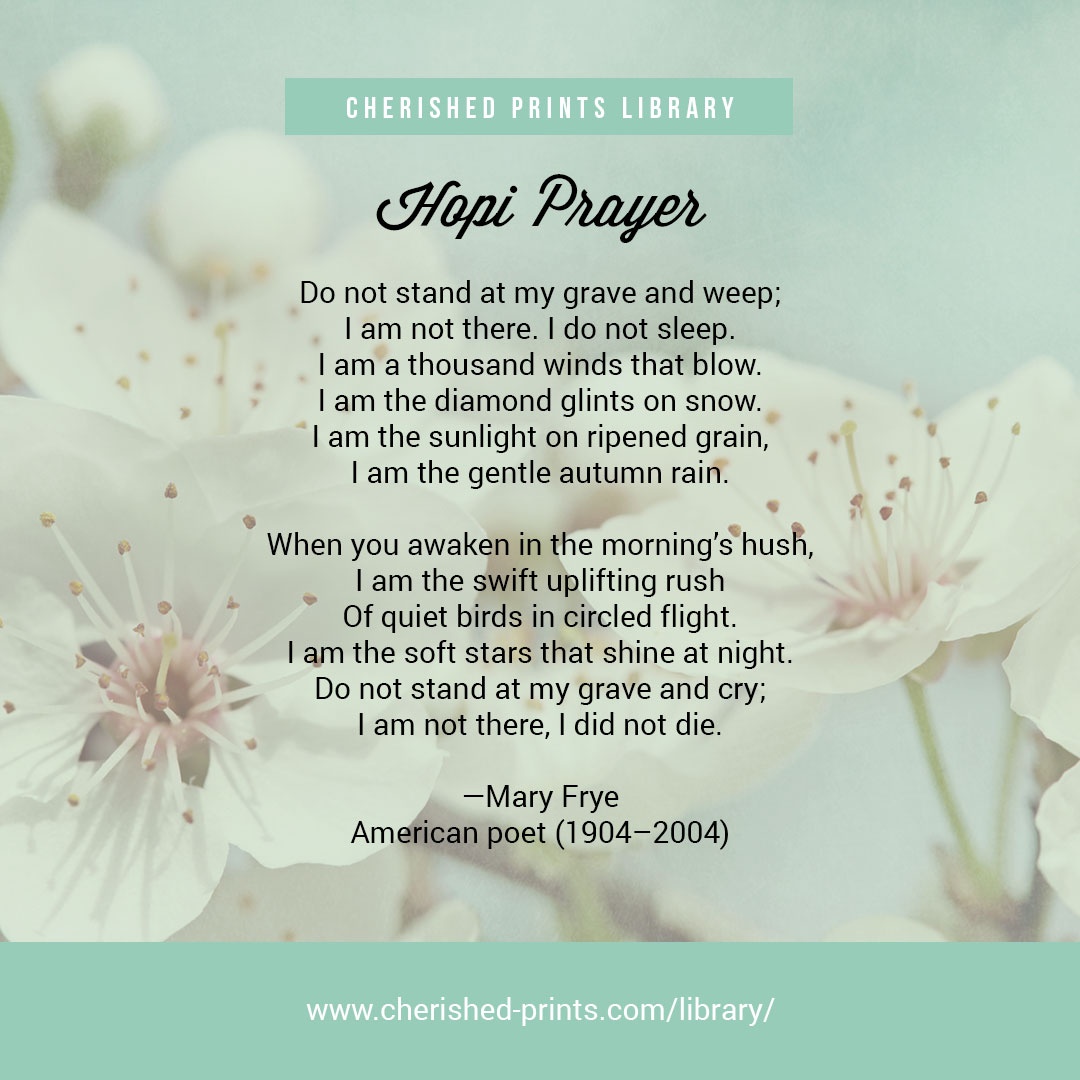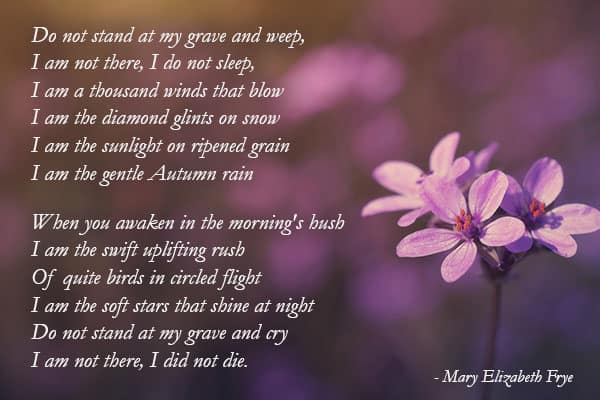

How can Do Not Stand At My Grave And Weep help you? (note: ClickBank may add local taxes in certain parts of the world, like VAT in the UK or Europe) We use ClickBank, a trusted online retailer specializing in digitally delivered products In my life and can happily recommend it to others." Sarah Kennedy This book far exceeded my expectations I found it extremely useful and comforting at a distressing time "A very well organized and comprehensive resource.

The range of poems is superb and the attention to detail impressive." W.F. "This book is at least as good as - if not better than - anything you can buy in the shops. What just some of our customers are saying. Whether you are writing a eulogy, planning a funeral or memorial service, finding ways to say how sorry you are in a sympathy card or condolence letter, crafting an obituary, attempting to console yourself and others or just trying to make sense of it all, the right words have a wonderful ability to soothe the soul. Over 250 sympathy poems, quotations and readings for funerals, memorial services, eulogies and inner peaceOne of the things you often struggle with after a loss is finding the perfect words to express your feelings. Whoever you have lost, this carefully crafted collection of poems and readings will help you find the words to express your sorrow, pay tribute to your loved one and do justice to a life lived. This user-friendly ebook is supplied via instant download, giving you quick access to all the resources you need and helping to reduce stress. You may well have been called upon to write a eulogy or speak at a funeral at very short notice, leaving little time to find a suitable poem or reading.


You've just found the most comprehensive and thoughtful collection of sympathy poems, quotes and readings available today. Thank you." Tim Greenĭon't lose valuable time searching for the perfect poem or reading - we've already done all the hard work, to save you the trouble. "I found exactly what I was looking for, in no time at all. Hope you liked this poem.Just can't find the right words? Now you can, with this unique collection of over 250 of the world's best funeral poems, quotations and readings This was a beautiful poem and one that seems highly relevant in the present scenario, as death tolls from around the world rise in a staggering manner. The inclusion of nature to capture such profound notions is also a widely loved feature of this poem. Poetic devices used include, hyperbole, imagery, rhyme and metaphor. The clear and empathetic claim that he/she is not there in the ground, but is alive is aimed at setting the mourner at peace. These lines would imply death being a new beginning, rather than an end, as is popularly believed. The poem ends on a firm note, with the reader being told to not weep, for the speaker has not died. These lines imply that a dead person never truly leaves us and is ever present in the soothing elements of nature. Apart from being there in the morning, the speaker says he/she will also be present at night in the form of the ‘ soft stars‘. The speaker further continues to soothe the reader letting them know that they’ll be there every morning, the mourner greets a new day, alive in ‘ the swift uprush of quiet birds‘. The descriptive phrases here, especially ‘ diamond glint‘ and ‘ ripened grain‘ add a rich element of imagery and structure to the poem. In the subsequent lines, the dead person is comforting the mourner, assuring them that rather than being dead, and in a grave, they are very much alive and present in every bit of nature. Widely read at funerals, this poem is aimed at soothing those who are mourning the loss of a loved one, with the dead person assuring them that they are not confined to their graves. Often noted for the authoritative tone evident in the first few lines, this poem starts with the speaker dictating the reader to not weep at his/her grave for they are not there in the grave. From Goodreads, ‘The poem for which she became famous was originally composed on a brown paper shopping bag, and was reportedly inspired by the story of a young Jewish girl, Margaret Schwarzkopf, who had been staying with the Frye household and had been unable to visit her dying mother in Germany because of anti-Semitic unrest.’ Written in 1932, this poem was written from the perspective of a person beyond the grave, someone who was well aware of what it felt like to die.


 0 kommentar(er)
0 kommentar(er)
